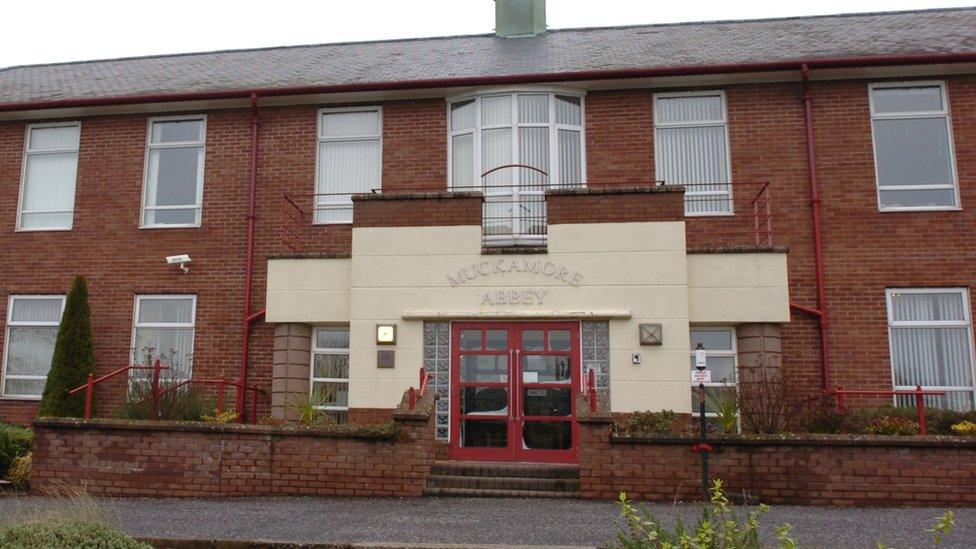Muckamore: Patient medication concerns not taken seriously, says mother
- Published
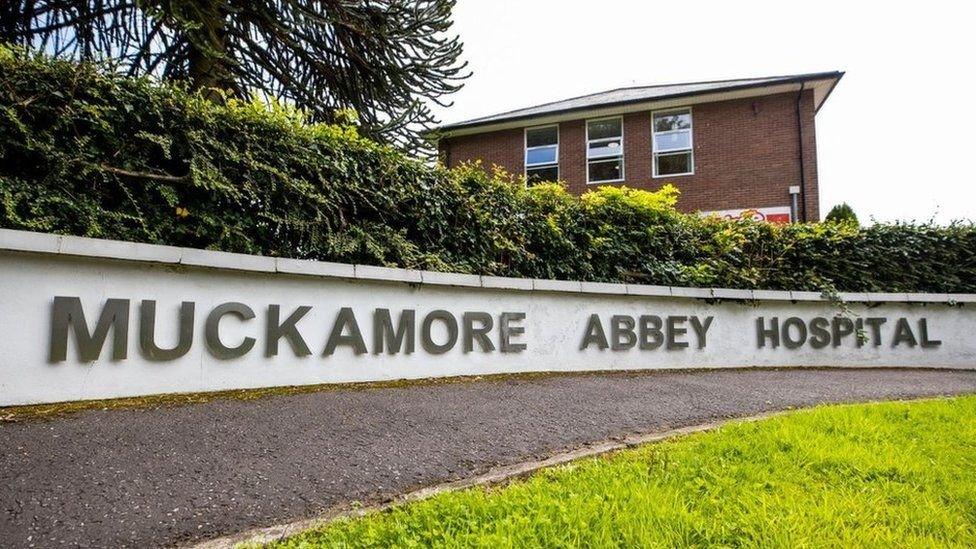
First allegations of patient abuse at Muckamore Abbey Hospital came to light in 2017
The mother of a Muckamore patient said her daughter had a serious allergic reaction to anti-psychotic medication which was "not taken seriously".
Catherine was giving evidence to the public inquiry into abuse of patients at Muckamore Abbey Hospital.
Her daughter Alicia, who has complex medical conditions, developed a rash while at the facility around 2015.
Catherine was told it was scabies but was doubtful after an earlier warning about the medication's side effects.
The County Antrim hospital is run by the Belfast Health Trust with facilities for adults with special needs. It is set to close in June 2024.
A major police investigation began in 2017 after allegations of ill-treatment began to emerge.
Thousands of hours of CCTV footage have been reviewed as part of a police investigation.
A separate public inquiry, which was set up following a campaign from patients' relatives, began in 2021 and opened for public hearings in June 2022.
'She looked very sick'
On Thursday, Catherine told the inquiry the rash had spread across her daughter's body, and that she had become "restless and agitated" when she was discharged from the facility.
Catherine took her daughter to hospital, but Alicia was discharged back to Muckamore Abbey Hospital.
"When I saw her, the whites of her eyes were yellow, lips peeling and fingertips blue - she looked very sick," the inquiry heard.
Catherine said she again raised concerns the adverse reaction might be due to Alicia's medication.
She said she felt "something was seriously wrong" and that she "felt shut down" and her concerns were "not being taken seriously".
She said she continually tried to explain that prescribing anti-psychotic medication to her daughter increased her chance of having seizures.
Catherine said she complained "maybe 10 or 12 times" and that Muckamore Abbey Hospital was not the place she thought it was.
After researching Alicia's medication online, Catherine said she became "very afraid she might die overnight because of the reaction".
Catherine said she begged a social worker to check her daughter hadn't developed a syndrome because of her medication.
A doctor then confirmed Alicia was having a reaction and stopped the medication.

Muckamore Abbey Hospital provides facilities for adults with severe learning disabilities and mental health needs
Catherine told the inquiry she was "frustrated this wasn't done sooner as she had been taking it for two weeks".
Later, when her mother took her to a private consultant, Catherine said she was told Alicia was "a very, very sick woman".
Catherine believes medication Alicia was prescribed while at Muckamore has "done damage to her brain".
She told the inquiry at the time she was "concerned, worried and petrified" and wondered if "Alicia would die or would she end up in hospital long term".
She said her daughter now has kidney failure and questions whether it is connected to medication she was prescribed long term while in Muckamore.
Cruel and inhumane
Catherine also raised concerns about the use of the seclusion room in Muckamore.
She said Alicia said she "had been put in jail" and was "afraid and crying".
Catherine told the inquiry she saw the room in 2016 and described it as a "cruel, inhumane practice".
"I was shocked by what I saw. The room was 3.5ft wide; more like a cupboard."
She said it instilled "fear and punishment" and described it as "torture" with no light coming in.
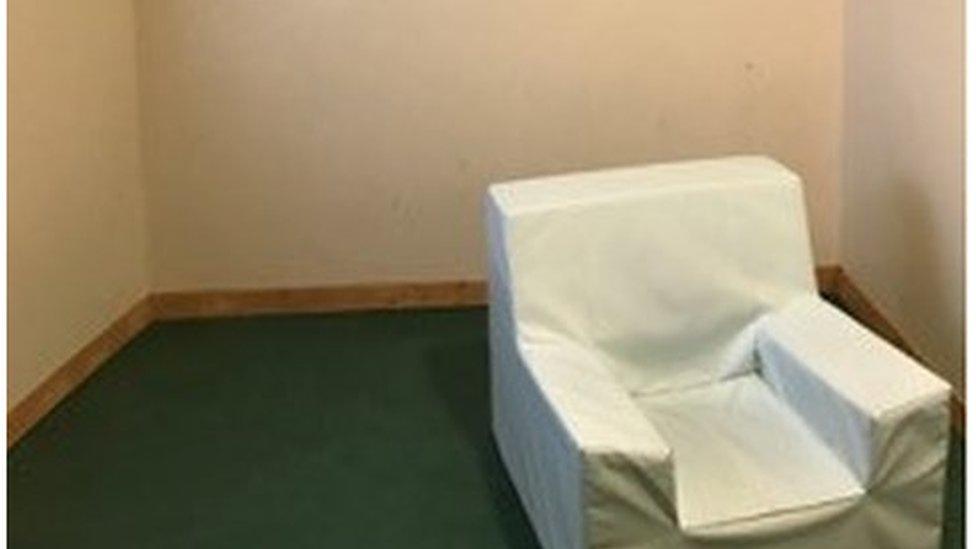
A seclusion room was used to contain patients at Muckamore
Catherine complained to the Belfast Trust and the RQIA about the buzzer not working inside the room but doesn't feel she was taken seriously.
"I cannot comprehend how a consultant psychiatrist, social workers, safeguarding officers, the RQIA, nurses or any other person could have deemed it fit for purpose," she said.
"I often think about what it was like for Alicia. It has had a profound, long term effect on Alicia."
Alicia is now 33 years old and has been resettled elsewhere in the community since 2018.
However, her mother said a delayed discharge from Muckamore "profoundly" affected her.
She described Alicia as being institutionalised, saying she picked up on learned behaviours while in Muckamore.
"That further time destroyed her unfortunately."
'Dreary and uninviting'
On Thursday afternoon, the inquiry heard from a man who worked for an organisation which helped resettle patients into supported living schemes.
The man, whose brother was also a patient in Muckamore for 18 years, spent several months training in the facility.
He said his initial impression was "horrible", describing his initial training as "terrifying".
The man is being identified as "p57's brother" to protect his identity.
He told the inquiry there was a sense of mistrust during his time on the ward and that Muckamore staff did not like his organisation being there.
"During my time on the ward, there was no interaction between staff and patients. Staff were observers rather than carers or nurses," he said.
P57's brother said there was no guidance on how to assist patients moving into the community and that, in his opinion, most patients shouldn't be there.
"Patients were bored out of their minds with very little to do," he told the inquiry
He said the ward he was on was "dreary and uninviting" and that he was most concerned when seven or eight patients were all brought to the bathroom at the same time.
The man told the inquiry one patient would be brushing their teeth and another in the shower.
He said there could be at least four patients naked at one time.
The inquiry heard there was "a loss of dignity" and "no attempt to preserve dignity".
The inquiry continues.
Related topics
- Published20 September 2023
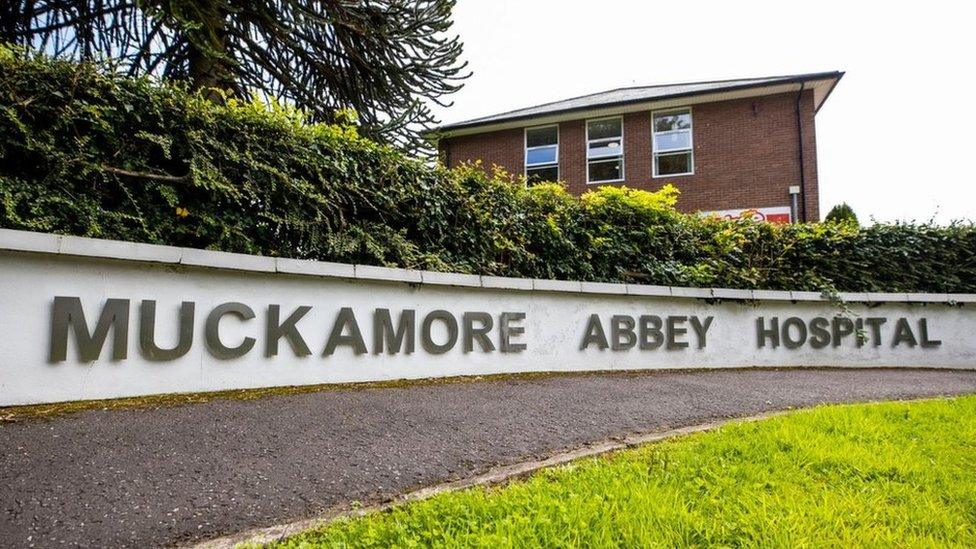
- Published12 September 2023
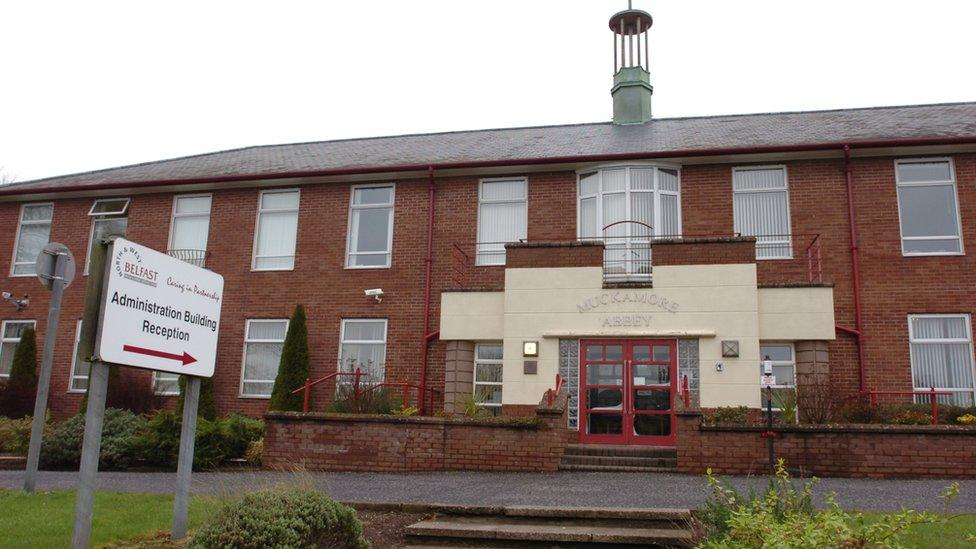
- Published6 July 2023

- Published7 September 2020
